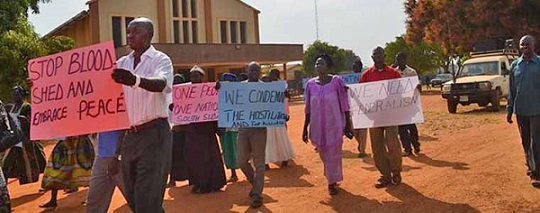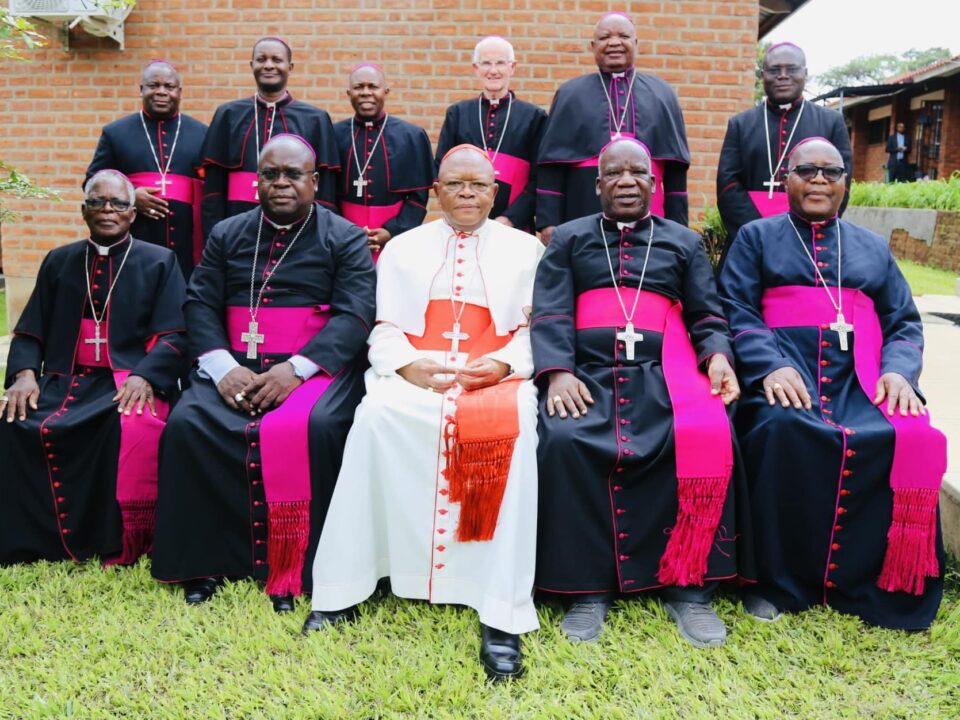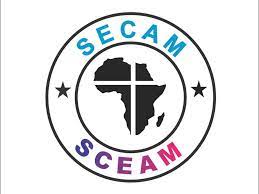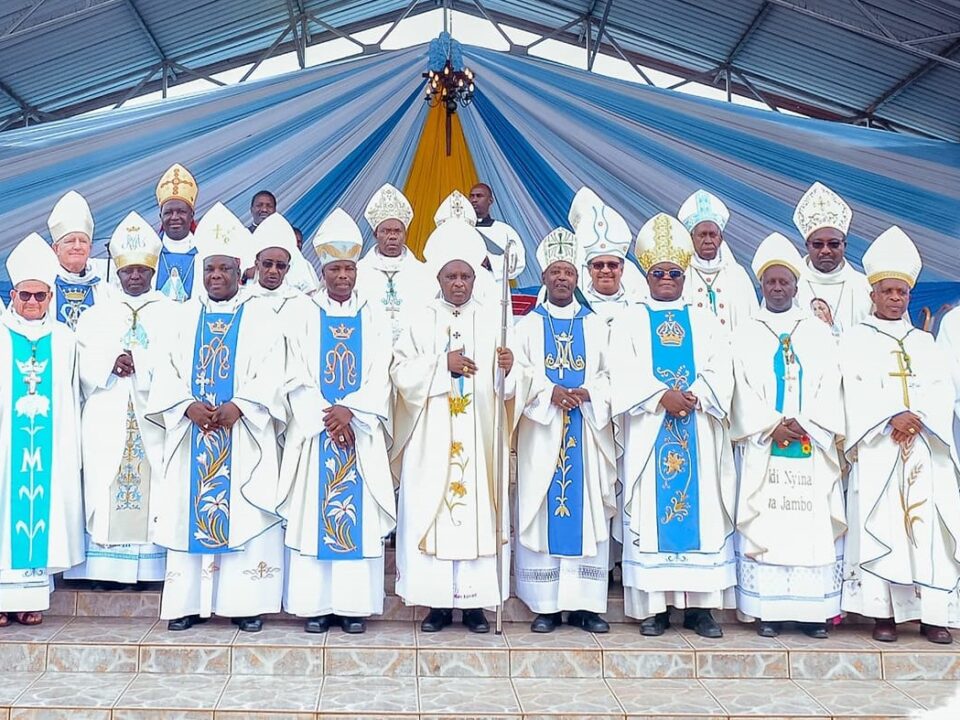- Contact us on - Contactez-nous sur - Contacte-nos em
- +233-30-277-8867/8
- +233-30-277-2548
- secam@secam.org
What the Church in South Sudan is Doing amid a Humanitarian Crisis
What the Church in South Sudan is Doing amid a Humanitarian Crisis
Catholic News Agency (CNA) || By Matt Hadro || 31 August 2016
 Amid a civil war, a humanitarian crisis, and the threat of mass starvation, the Church in South Sudan is still working to bring Christ to a troubled country.
Amid a civil war, a humanitarian crisis, and the threat of mass starvation, the Church in South Sudan is still working to bring Christ to a troubled country.
After meeting with Archbishop Paulino Lukudu Loro of Juba, Rep. Chris Smith (R-N.J.) noted that “the Church plays a key role, as always and everywhere, in the provision of humanitarian aid,” and that “the bishops I met with are just absolutely committed to living out Matthew 25, the vulnerable people and helping people as if they were Christ.”
Smith, chair of the House Subcommittee on Global Human Rights, just returned from a fact-finding human rights mission to South Sudan where he met with religious, humanitarian, and political leaders , including the Archbishop Lukudu, President Salva Kiir Mayardit, and Defense Minister Kuol Manyang Juuk.
South Sudan became an independent country in 2011 but it has been torn by a civil war since December 2013, between the state forces – the Sudan People’s Liberation Army – and opposition forces, as well as sectarian conflict.
A peace agreement was signed but it was broken by violence earlier this summer, which prompted the South Sudan Council of Churches to publicly condemn the violence and pray for peace. A ceasefire was then ordered by President Kiir and then-Vice President Machar in July. Machar, the former rebel leader, ended up fleeing the country.
The scale of the humanitarian crisis in South Sudan is immense: similar to that of the Middle East with the Islamic State, Smith noted to CNA.
There are an estimated 1.7 million people displaced within the country, more than 800,000 refugees, and almost 3 million people at risk of “life-threatening hunger,” according to congressional testimony by a USAID official earlier this year. Many are without food and medicine, Smith said.
Almost 6 million people “are facing a severe hunger crisis” there, Catholic Relief Services reports.
Archbishop Lukudu “described a loss of hope upon many people,” Smith said, and he related to Smith how “the great expectations from five years ago when they became independent have, for the time being, crashed and burned, although hope remains eternal.”
“So he expressed grave concerns about the humanitarian crisis, the crisis of leadership,” Smith said. The bishops of the country have also been “scrambling to provide shelter” and “safe refuge” for the many refugees there, he added.
Some of the top concerns that Smith said he addressed in his meetings with South Sudan’s president and defense minister were atrocities such as rape inflicted upon civilians and missionaries by soldiers, as well as the recruitment of children as soldiers.
South Sudan is also listed as a Tier 3 country for its human trafficking problem. Tier 3 countries, under the Trafficking Victims Protection Act, are among the “countries whose governments do not fully comply with the minimum standards and are not making significant efforts to do so.”
Recruitment of child soldiers in South Sudan is “among the worst in the world” Smith said, with an estimated 16,000 child soldiers since the conflict intensified in December 2013. The special danger of child soldiers, he noted, is what violence does to a young person’s psyche, especially as they transition into adulthood.
Ethnic violence and the victimization of aid workers by state and opposition soldiers are other grave problems in the country. Aid workers are especially at risk. There are 2,000 international and 18,000 South Sudanese aid workers in the country, and many are “beaten,” “killed,” or “stopped” from aid work by fighters, Smith said.
There were more major attacks on aid workers in the South Sudan than in any other country in 2015, the group Humanitarian Outcomes has reported.
Recently, amid the civil war, South Sudanese soldiers entered the Terrain compound in the capital city of Juba and attacked international aid workers. “A woman in my own district” who worked with an aid organization “was raped when the Terrain compound was raided,” Smith said.
“A lot of foreign aid workers, U.S. and international workers were there. They killed a couple of people, and just beat people horribly, and they were South Sudanese soldiers,” he continued.
Despite calls for help, United Nations peacekeeping forces just up the road did not come to the aid of the victims, Smith added. Incidents like that have been a recurring problem among UN forces who are supposed to protect the innocent but are not, he said.
Smith noted in a statement that he got commitments from the president and defense minister that a “zero-tolerance policy” against “rape, sexual violence and human trafficking” by all soldiers in the conflict would be implemented.
Although there have been money and supplies sent to the country, access remains the biggest obstacle to serving the more than 6 million citizens who need humanitarian assistance, Smith said. The geography of the region, the remoteness of certain areas of humanitarian need, and soldiers acting as obstacles to aid being delivered, have all combined to thwart the aid reaching the people who need it.
Source: Catholic News Agency…



